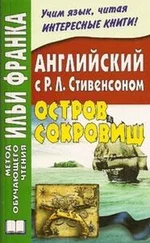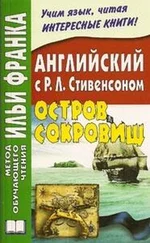Роберт Стивенсон - Vailima Letters
Здесь есть возможность читать онлайн «Роберт Стивенсон - Vailima Letters» — ознакомительный отрывок электронной книги совершенно бесплатно, а после прочтения отрывка купить полную версию. В некоторых случаях можно слушать аудио, скачать через торрент в формате fb2 и присутствует краткое содержание. Жанр: literature_19, foreign_antique, foreign_prose, на английском языке. Описание произведения, (предисловие) а так же отзывы посетителей доступны на портале библиотеки ЛибКат.
- Название:Vailima Letters
- Автор:
- Жанр:
- Год:неизвестен
- ISBN:нет данных
- Рейтинг книги:5 / 5. Голосов: 1
-
Избранное:Добавить в избранное
- Отзывы:
-
Ваша оценка:
- 100
- 1
- 2
- 3
- 4
- 5
Vailima Letters: краткое содержание, описание и аннотация
Предлагаем к чтению аннотацию, описание, краткое содержание или предисловие (зависит от того, что написал сам автор книги «Vailima Letters»). Если вы не нашли необходимую информацию о книге — напишите в комментариях, мы постараемся отыскать её.
Vailima Letters — читать онлайн ознакомительный отрывок
Ниже представлен текст книги, разбитый по страницам. Система сохранения места последней прочитанной страницы, позволяет с удобством читать онлайн бесплатно книгу «Vailima Letters», без необходимости каждый раз заново искать на чём Вы остановились. Поставьте закладку, и сможете в любой момент перейти на страницу, на которой закончили чтение.
Интервал:
Закладка:
Fanny’s time, in this interval, has been largely occupied in contending publicly with wild swine. We have a black sow; we call her Jack Sheppard; impossible to confine her – impossible also for her to be confined! To my sure knowledge she has been in an interesting condition for longer than any other sow in story; else she had long died the death; as soon as she is brought to bed, she shall count her days. I suppose that sow has cost us in days’ labour from thirty to fifty dollars; as many as eight boys (at a dollar a day) have been twelve hours in chase of her. Now it is supposed that Fanny has outwitted her; she grins behind broad planks in what was once the cook-house. She is a wild pig; far handsomer than any tame; and when she found the cook-house was too much for her methods of evasion, she lay down on the floor and refused food and drink for a whole Sunday. On Monday morning she relapsed, and now eats and drinks like a little man. I am reminded of an incident. Two Sundays ago, the sad word was brought that the sow was out again; this time she had carried another in her flight. Moors and I and Fanny were strolling up to the garden, and there by the waterside we saw the black sow, looking guilty. It seemed to me beyond words; but Fanny’s cri du cœur was delicious: ‘G-r-r!’ she cried; ‘nobody loves you!’
I would I could tell you the moving story of our cart and cart-horses; the latter are dapple-grey, about sixteen hands, and of enormous substance; the former was a kind of red and green shandry-dan with a driving bench; plainly unfit to carry lumber or to face our road. (Remember that the last third of my road, about a mile, is all made out of a bridle-track by my boys – and my dollars.) It was supposed a white man had been found – an ex-German artilleryman – to drive this last; he proved incapable and drunken; the gallant Henry, who had never driven before, and knew nothing about horses – except the rats and weeds that flourish on the islands – volunteered; Moors accepted, proposing to follow and supervise: despatched his work and started after. No cart! he hurried on up the road – no cart. Transfer the scene to Vailima, where on a sudden to Fanny and me, the cart appears, apparently at a hard gallop, some two hours before it was expected; Henry radiantly ruling chaos from the bench. It stopped: it was long before we had time to remark that the axle was twisted like the letter L. Our first care was the horses. There they stood, black with sweat, the sweat raining from them – literally raining – their heads down, their feet apart – and blood running thick from the nostrils of the mare. We got out Fanny’s under-clothes – couldn’t find anything else but our blankets – to rub them down, and in about half an hour we had the blessed satisfaction to see one after the other take a bite or two of grass. But it was a toucher; a little more and these steeds would have been foundered.
Monday , 31 st ? November .Near a week elapsed, and no journal. On Monday afternoon, Moors rode up and I rode down with him, dined, and went over in the evening to the American Consulate; present, Consul-General Sewall, Lieut. Parker and Mrs. Parker, Lafarge the American decorator, Adams an American historian; we talked late, and it was arranged I was to write up for Fanny, and we should both dine on the morrow.
On the Friday, I was all forenoon in the Mission House, lunched at the German Consulate, went on board the Sperber (German war ship) in the afternoon, called on my lawyer on my way out to American Consulate, and talked till dinner time with Adams, whom I am supplying with introductions and information for Tahiti and the Marquesas. Fanny arrived a wreck, and had to lie down. The moon rose, one day past full, and we dined in the verandah, a good dinner on the whole; talk with Lafarge about art and the lovely dreams of art students. Remark by Adams, which took me briskly home to the Monument – ‘I only liked one young woman – and that was Mrs. Procter.’ Henry James would like that. Back by moonlight in the consulate boat – Fanny being too tired to walk – to Moors’s. Saturday, I left Fanny to rest, and was off early to the Mission, where the politics are thrilling just now. The native pastors (to every one’s surprise) have moved of themselves in the matter of the native dances, desiring the restrictions to be removed, or rather to be made dependent on the character of the dance. Clarke, who had feared censure and all kinds of trouble, is, of course, rejoicing greatly. A characteristic feature: the argument of the pastors was handed in in the form of a fictitious narrative of the voyage of one Mr. Pye, an English traveller, and his conversation with a chief; there are touches of satire in this educational romance. Mr. Pye, for instance, admits that he knows nothing about the Bible. At the Mission I was sought out by Henry in a devil of an agitation; he has been made the victim of a forgery – a crime hitherto unknown in Samoa. I had to go to Folau, the chief judge here, in the matter. Folau had never heard of the offence, and begged to know what was the punishment; there may be lively times in forgery ahead. It seems the sort of crime to tickle a Polynesian. After lunch – you can see what a busy three days I am describing – we set off to ride home. My Jack was full of the devil of corn and too much grass, and no work. I had to ride ahead and leave Fanny behind. He is a most gallant little rascal is my Jack, and takes the whole way as hard as the rider pleases. Single incident: half-way up, I find my boys upon the road and stop and talk with Henry in his character of ganger, as long as Jack will suffer me. Fanny drones in after; we make a show of eating – or I do – she goes to bed about half-past six! I write some verses, read Irving’s Washington , and follow about half-past eight. O, one thing more I did, in a prophetic spirit. I had made sure Fanny was not fit to be left alone, and wrote before turning in a letter to Chalmers, telling him I could not meet him in Auckland at this time. By eleven at night, Fanny got me wakened – she had tried twice in vain – and I found her very bad. Thence till three, we laboured with mustard poultices, laudanum, soda and ginger – Heavens! wasn’t it cold; the land breeze was as cold as a river; the moon was glorious in the paddock, and the great boughs and the black shadows of our trees were inconceivable. But it was a poor time.
Sunday morning found Fanny, of course, a complete wreck, and myself not very brilliant. Paul had to go to Vailele re cocoa-nuts; it was doubtful if he could be back by dinner; never mind, said I, I’ll take dinner when you return. Off set Paul. I did an hour’s work, and then tackled the house work. I did it beautiful: the house was a picture, it resplended of propriety. Presently Mr. Moors’ Andrew rode up; I heard the doctor was at the Forest House and sent a note to him; and when he came, I heard my wife telling him she had been in bed all day, and that was why the house was so dirty! Was it grateful? Was it politic? Was it TRUE? – Enough! In the interval, up marched little L. S., one of my neighbours, all in his Sunday white linens; made a fine salute, and demanded the key of the kitchen in German and English. And he cooked dinner for us, like a little man, and had it on the table and the coffee ready by the hour. Paul had arranged me this surprise. Some time later, Paul returned himself with a fresh surprise on hand; he was almost sober; nothing but a hazy eye distinguished him from Paul of the week days: vivat !
On the evening I cannot dwell. All the horses got out of the paddock, went across, and smashed my neighbour’s garden into a big hole. How little the amateur conceives a farmer’s troubles. I went out at once with a lantern, staked up a gap in the hedge, was kicked at by a chestnut mare, who straightway took to the bush; and came back. A little after, they had found another gap, and the crowd were all abroad again. What has happened to our own garden nobody yet knows.
Читать дальшеИнтервал:
Закладка:
Похожие книги на «Vailima Letters»
Представляем Вашему вниманию похожие книги на «Vailima Letters» списком для выбора. Мы отобрали схожую по названию и смыслу литературу в надежде предоставить читателям больше вариантов отыскать новые, интересные, ещё непрочитанные произведения.
Обсуждение, отзывы о книге «Vailima Letters» и просто собственные мнения читателей. Оставьте ваши комментарии, напишите, что Вы думаете о произведении, его смысле или главных героях. Укажите что конкретно понравилось, а что нет, и почему Вы так считаете.









